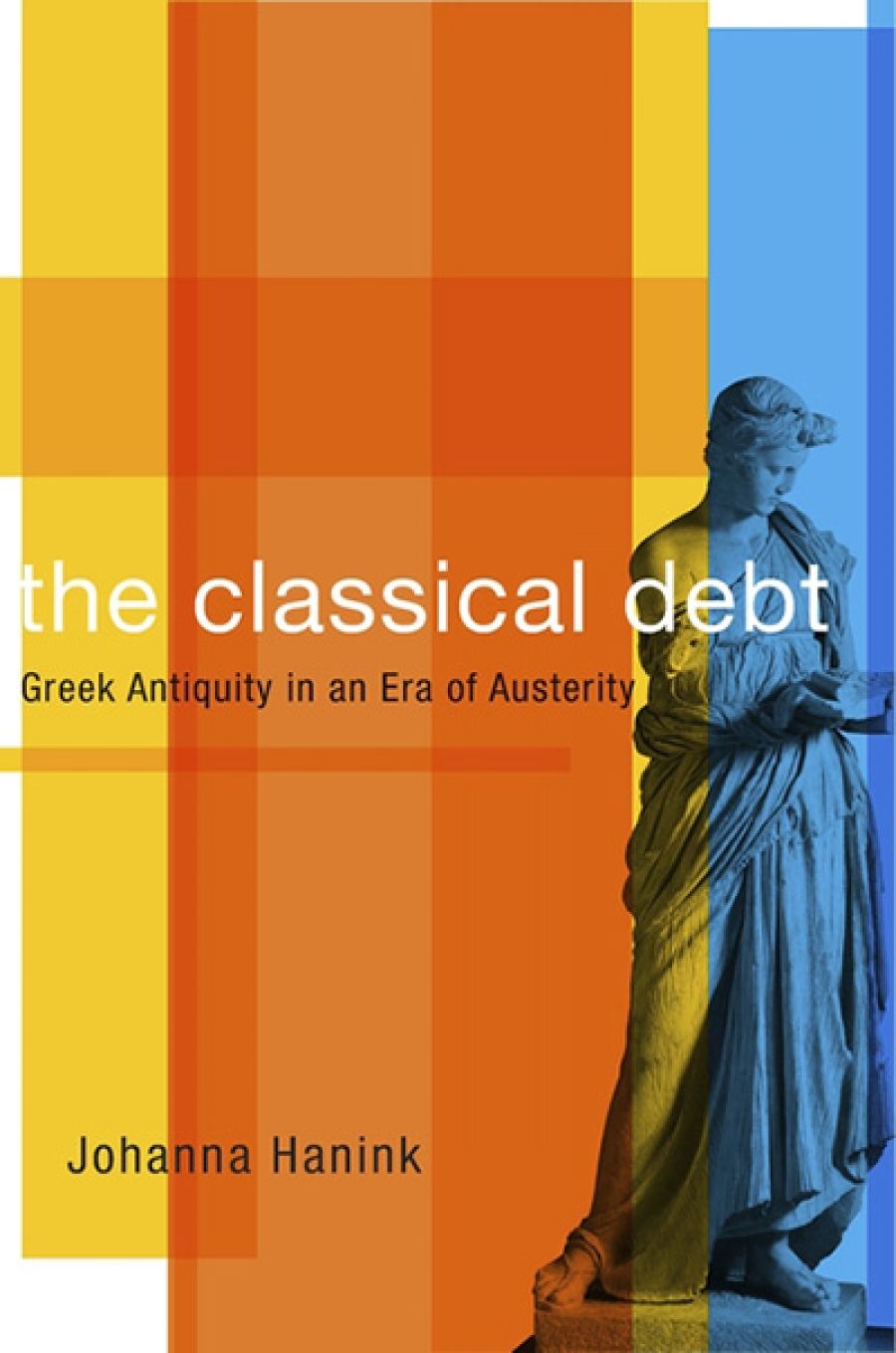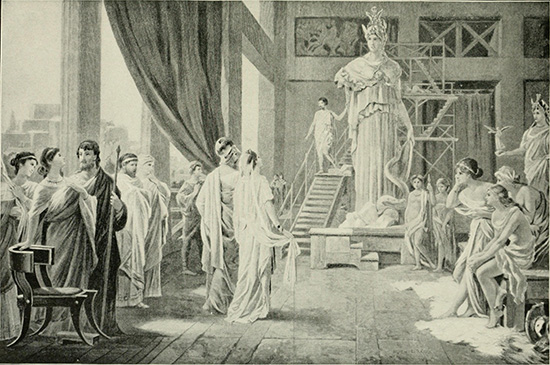
- Free Article: No
- Contents Category: Classics
- Custom Article Title: Peter Acton reviews 'The Classical Debt: Greek antiquity in an Era of austerity' by Johanna Hanink
- Custom Highlight Text:
‘They rose from nothing and changed everything.’ This fantastic, fawning, fallacious guff introduced a 2016 PBS documentary on ancient Greece, and the biography of the sentiment behind it forms the subject of this unusual social history. Irritated by the fact that almost every media report, political speech, and cartoon about ...
- Book 1 Title: The Classical Debt
- Book 1 Subtitle: Greek antiquity in an Era of austerity
- Book 1 Biblio: Belknap Press (Footprint), $64.99 hb, 352 pp, 9780674971547
Central to her exploration is the concept of the West’s debt to Greece for its cultural legacy, long used as a reason to demand the return of the Parthenon marbles and now to request softer treatment by the nation’s creditors. She traces how the idea of this debt evolved, initially through Athens’s own promotional efforts in classical times and later through the patronising colonialism of classics enthusiasts and the passionate support of philhellenists. Hanink also examines the opposing motif that accompanies this notional cultural debt. Even fourth-century Athenians felt they were unworthy of their fifth-century ancestors, and commentators since Cicero have lamented the decline of a once great nation, which of course makes a case for not repaying the debt. A strong and controversial form of this counterargument is that modern Greeks are not descendants of the ancient ones at all, but Romiotes (non-Muslim Ottomans), as they referred to themselves a few centuries ago, or, as Jakob Philipp Fallmerayer argued more recently, Slavs.
In tracing these attitudes, Hanink provides a scholarly but eminently readable history of Greece. She describes how classical Athens used its role in defeating the Persian invasions not only to demand tribute from the Delian League but to build its brand as the saviour of Greece from Asian ‘barbarians’ and a unique centre of culture for the region. In reality, the most visible manifestation of Athens’s culture, the Periclean building program, was funded by the allies who looked to Athens for military protection, and much of Athens’s famed philosophy had its genesis in allied states in Asia Minor. As Hanink describes it, the Athenians’ principal skill lay in creating monuments to themselves. These monuments were not only physical: festivals and funeral orations gloried in the willingness of Athenians to die for their state and for democracy. This was of course a slave-owning democracy in which women had few rights.
From classical Athens, we skip to the Renaissance when interest in classical scholarship was revived and scholars started exploring ancient Greece. Feeling that they had a better grasp of Greece’s history, and indeed its language, than contemporary Greeks did, they believed this gave them the right to appropriate its treasures and influence its politics. In return, in travel writing, in interpretations of history, in making Athenian public buildings the gold standard for institutional architecture, and not least in the aesthetic formulations of Johann Winckelmann and his followers, they exalted the idea of classical Athens to a level of which Pericles would have been proud. Wits observed that the true descendants of ancient Greece were to be found in the corridors of Oxford and Cambridge.
Greek governments from the first king, Otto of Bavaria, to the Papandreous have invested heavily in restoring, revivifying, and promoting the glories of ancient Athens and have often used this idealised vision and the associated cultural debt to ask for overseas support, as it had been in the War of Independence. Since Greece’s twentieth-century ‘economic miracle’ collapsed in an expensive heap, it is regularly used to demand leniency from Greece’s creditors, though so far to little avail. Strangely, such arguments seldom feature in discussions of Greece’s current refugee crisis. Hanink offers two explanations: a special kind of racism among Greeks, fostered by Winckelmann’s erroneous belief that all Athenian monuments and statuary were originally white, and the comfort Western Europe derives from seeing Greece as its Eastern boundary and a bulwark against invaders.
 Pericles and Aspasia at the studio of Phidias (from The story of the greatest nations, from the dawn of history to the twentieth century, 1900, F.R. Niglutsch, New York)
Pericles and Aspasia at the studio of Phidias (from The story of the greatest nations, from the dawn of history to the twentieth century, 1900, F.R. Niglutsch, New York)
It is a little disappointing that Hanink explicitly chooses not to examine the claim that most of Western culture was ‘invented’ in ancient Greece. There is plenty of evidence that many elements of it (philosophy, algebra, astronomy, etc.) had their origins elsewhere, but this is only briefly referred to in the Epilogue, ‘A Note for Educators’, and the only reference in the main text to the topic is to the controversial theory that Greek philosophy was originally African. It seems strange that such a detailed investigation of the impact of a belief is virtually silent on its veracity. Recent scholarship has provided abundant evidence of ideas reaching Greece from elsewhere, notably along the Silk Road, and it would have added little to her research task to have summarised it.
In other respects, Hanink’s research is impressive and her interpretations convincing, though Patrick Leigh Fermor’s friends would have been amused to see him placed in the nineteenth century. Her engaging style interweaves history and social analysis in a thoroughly readable way, helped by a judicious selection of illustrations. Her choice of anecdotes, journal articles, satirical shows, and cartoons illustrating how the ‘debt’ concept is used and abused is canny and often amusing, though she never underplays the human tragedies that continue to define Greece today. There can be few more enjoyable ways for a reader to learn something of Greece’s history while acquiring an important insight into the attitudes that make her present problems so perplexing.


Comments powered by CComment